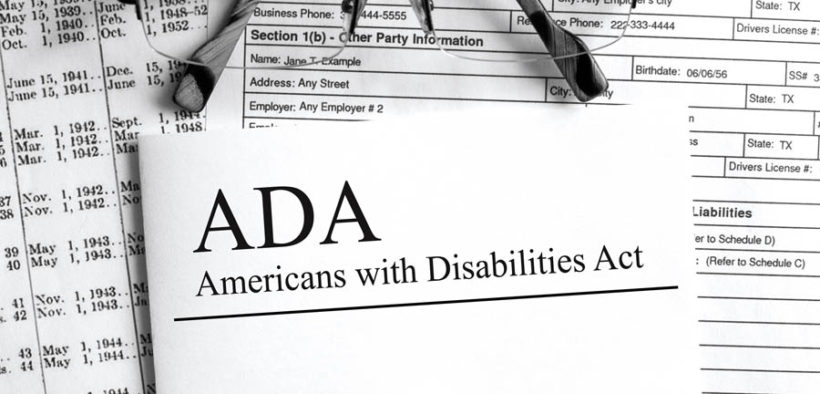Op-Ed: Violations to ADA by fully capable people must be stopped

Puerto Rico is facing a new epidemic of scammers, who use fraudulent identifications or information from family members with physical, intellectual, or emotional limitations, for their personal use and benefit, violating the Americans with Disabilities Act of 1990, as amended (ADA) statutes and regulations.
This situation represents a substantial challenge for people with special needs, and for the businesses that provide them with goods and services. Two common examples of fraud and abuse occur with accessible parking lots and service animals.
The most common observation is when dishonest and selfish individuals illegally occupy accessible parking spaces, by obtaining a false identification, or indiscriminately using a bona fide state-issued ID for a family member with special needs, even when that person is not riding in said vehicle. Although legislated fines are substantial and multiple reports have been published in the press exposing these illegal practices, very little has been done to stop them.
A second recurrent scam occurs when inconsiderate and unscrupulous individuals misrepresent companion or emotional support pets as service animals, by creating false identifications or obtaining doctored carnets or certifications on the Internet. The ADA and the federal Department of Justice clearly distinguish what constitutes a service animal versus a companion pet.
A service animal is usually a dog — and sometimes, a miniature horse — highly trained for a specific function or functions, can understand complex situations and accomplish their tasks even during times of duress, and becomes a key extension to the functioning, health, or protection of a person with special needs.
This irresponsible behavior is on the rise as more people have companion dogs and want to take them everywhere. In the United States, an industry has developed around pets, with sales exceeding $123 billion annually.
While complaints about these situations are increasing, from people who need accessible facilities and services, our government agencies claim not to have enough qualified personnel to attend these. The ADA is highly technical, and overseeing it requires ongoing education, flexibility, experience, and a commitment to creating an inclusive environment.

As the average age of our population increases, many of our citizens will develop special conditions, requiring the use of accessible facilities and the assistance of service animals. Seniors strive to stay fully active in our economy, and children with limitations happily seek alternatives to enjoy their lives to the fullest. Therefore, our collective mission must be to ascertain more accessible facilities and services are available to the population that truly needs them.
Unfortunately, while new and additional ADA facilities and services are needed, we observe a sustained growth of illegal behaviors and practices, by totally able people, to use them in the places we visit and in our establishment.
Annually, we receive thousands of clients and see some citizens use trickery and subterfuges to occupy enhanced access facilities and misrepresent emotional support animals and pets as service animals. These practices cause great frustration among people with special needs and businesspeople, primarily in the direct-to-customer service sectors.
We must reduce these violations with the intention and will to strengthen our communities and make them more inclusive. Our legislature and government agencies, together with the communications media, and the trade and commercial organizations, can implement sustained education campaigns and monitoring processes to lessen these misconducts, identify and punish fraudsters, to ensure these facilities and services are available for citizens that need them.
Other jurisdictions in the United States are facing similar challenges, and are responsibly addressing them with more specific legislation, ongoing education, better signage, heightened enforcement, and substantial penalties for fraudsters.
It’s time to lead with a purpose and do what must be done!






